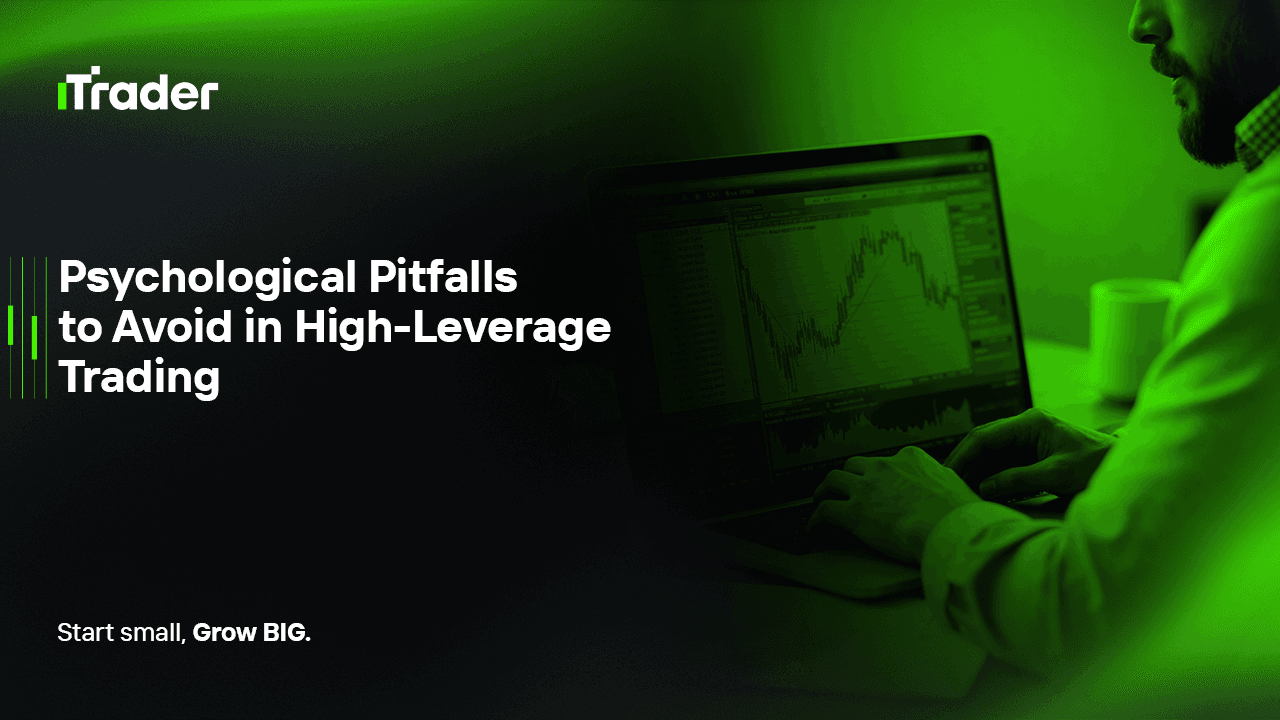2025-07-24
In the forex market, leverage is one of the most powerful tools available to traders. Prop firms often offer leverage ratios as high as 1:50, 1:100, or even 1:500, enabling traders to control large positions with minimal capital. While this creates opportunities for substantial profits, it also magnifies risk. A single mistake can wipe out an entire account. In such environments, technical skill alone is not enough—emotional discipline and self-regulation become paramount.

Why is psychology so important in trading? Because every trading decision—when to enter, when to exit, how much to risk—is deeply intertwined with emotional reactions. Under the pressure of high leverage, rational thinking often gives way to reactive behavior driven by stress, fear, or overconfidence.
AI Summary:
This article explores the common psychological pitfalls that forex prop traders face when trading with high leverage and provides practical methods to overcome them. Topics include loss aversion, overconfidence, revenge trading, and fear of missing out (FOMO). By developing structured emotional control techniques, traders can build long-term consistency and resilience in a highly leveraged environment.
According to Prospect Theory by Kahneman and Tversky, humans are more sensitive to losses than they are to equivalent gains. In trading, this manifests as an unwillingness to close losing trades, even when a stop-loss should have been hit. Traders hope for a reversal and hold onto losing positions far too long. Under high leverage, even a minor price move against you can result in a catastrophic loss if this bias is not managed.
After a series of winning trades, traders may start to believe they “understand” the market or that it somehow conforms to their analysis. This can lead to dangerous behavior—overleveraging, removing stop-losses, or taking impulsive trades with an unjustified sense of certainty. The truth is, no one can predict the market with absolute accuracy, and overconfidence under leverage leads to disproportionate risk.
After taking a loss, traders often experience anger and frustration, prompting them to “get back” at the market. This results in emotionally driven decisions, often with larger position sizes and less planning. In its most extreme form, traders double down to recover their losses quickly—one of the fastest ways to blow up a leveraged account.
Sudden market movements often provoke anxiety in traders who feel they are missing out on an opportunity. FOMO leads to spontaneous trades that deviate from a trader’s plan or system. In a high-leverage environment, a single impulsive trade made out of fear can result in significant losses.
Setting constraints before trading begins is a powerful way to regulate emotions. This includes:
The key is to make decisions while calm—not in the heat of a trade where pressure and emotions cloud judgment.
This refers to automatic stop mechanisms that pause trading during periods of emotional instability. For example:
These rules give the trader space to reset and analyze without pressure, preventing a spiral of emotional decision-making.
Traders should keep a journal not only for trade data but also for psychological states. After each trade, reflect on:
This habit allows traders to identify recurring patterns, understand emotional triggers, and make gradual improvements over time.
Just because a prop firm offers 1:100 or 1:500 leverage does not mean you should use it all. Leverage should match your emotional capacity. Each trader has a unique emotional threshold, and managing risk within your personal limits is essential for long-term sustainability. Leverage is a tool—not a necessity.
Prop trading environments are structured to test performance under strict rules and time constraints. Even if a strategy is solid and the system is backtested, a trader can fail if their psychological resilience is lacking.
Common psychological pressures in prop firms include:
These create a mental environment ripe for emotional decisions. Therefore, prop traders must go beyond technical competence and train themselves for psychological endurance.
Emotional discipline is not about suppressing emotions—it’s about recognizing and managing them effectively. A trader’s psychology consists of habits, tendencies, and a continuous process of self-discovery. Developing it requires daily awareness, practice, and structure. This includes:
Only when a trader gains control over their internal world can they wield leverage in their favor rather than it working against them.
High leverage in the forex market presents powerful opportunities, but it also introduces severe psychological risks. Success in trading is not just about analyzing price or timing entries—it depends largely on a trader’s ability to stay emotionally grounded, follow a system, and recover from mistakes without spiraling into destructive behavior.
Prop traders especially must prioritize emotional regulation as much as they do strategy. When properly managed, psychological resilience becomes a trader’s greatest edge—ensuring that leverage becomes an ally instead of a liability.
© 2025 iTrader Global Limited|会社登録番号:15962
iTrader Global Limitedは、コモロ連合のアンジュアン自治島ムツァムドゥのHamchakoに所在し、コモロ証券委員会によって認可・規制を受けています。ライセンス番号は L15962/ITGL です。
iTrader Global Limitedは「iTrader」の商号で運営しており、外国為替取引業務を行う許可を受けています。会社のロゴ、商標、ウェブサイトはすべて iTrader Global Limited の専有財産です。
iTrader Global Limitedの他の子会社には、iTrader Global Pty Ltd(オーストラリア会社登録番号(ACN):686 857 198)が含まれます。 この会社は、Opheleo Holdings Pty Ltd(オーストラリア金融サービスライセンス(AFSL)番号:000224485)の認可を受けた代表者(AFS代表番号:001315037)です。登録住所は Level 1, 256 Rundle St, Adelaide, SA 5000 です。
免責事項: この法人は、本ウェブサイト上で取引される金融商品の発行者ではなく、それらに対して責任を負いません。
リスク警告: 差金決済取引(CFD)は、レバレッジにより資本の急速な損失リスクが高く、すべての利用者に適しているとは限りません。
ファンド、CFD、その他の高レバレッジ商品を取引するには、専門的な知識が必要です。
調査によると、84.01%のレバレッジ取引者が損失を被っています。取引を開始する前に、リスクを十分に理解し、資金を失う可能性があることを認識してください。
iTraderは、レバレッジ取引によるリスク、損失、またはその他の損害について、個人または法人に対して一切の責任を負わないことを明言します。
利用制限: iTraderは、法律、規制、または政策によりこのような活動が禁止されている国の居住者を対象として、本ウェブサイトやサービスを提供していません。